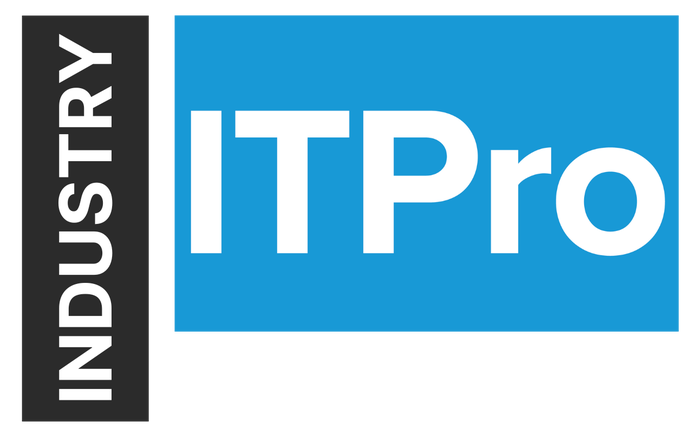
Insight and analysis on the information technology space from industry thought leaders.
The Role of Human Touch in Agentic AI Data ManagementThe Role of Human Touch in Agentic AI Data Management
Advancements in agentic AI bring new challenges, especially in data privacy and regulatory compliance. Here's how to harness its benefits while ensuring privacy and compliance.
February 20, 2025

By Ken Ammon, Diliko
Agentic AI — artificial intelligence capable of autonomous action — has evolved beyond traditional models, executing tasks, making decisions, and learning independently. For CIOs, CDOs, and CPOs, this technology offers vast opportunities for operational efficiency and enhanced data analytics. Yet, with these advances come significant challenges, particularly around data privacy and regulatory compliance.
Human Oversight and Agentic AI
Agentic AI excels at automating data processes and decision-making, but it cannot replicate human contextual judgment and ethical perspective. Despite their capabilities, automated systems can lead to significant risks if left unchecked. One primary risk is improper handling of personally identifiable information (PII). In finance and healthcare — industries bound by stringent regulations — organizations must not only protect data but also uphold rights like data portability and the “right to be forgotten.”
For instance, a healthcare provider using agentic AI to automate patient record analysis might face challenges ensuring data deletion on request. The AI could inadvertently duplicate or mishandle data, making compliance difficult. Human oversight is key to verifying that data tagging, encryption, and deletion processes are carried out correctly.
Multiple Challenges to Overcome
While the importance of human oversight is clear, implementing it effectively comes with some hurdles. These include:
Complexity of Compliance Requirements: Keeping up with evolving regulations such as GDPR and CCPA can be overwhelming, particularly for midsize organizations with limited technical resources. Unlike larger enterprises, midsize companies often lack the specialized compliance teams to interpret and implement complex data privacy laws. This can lead to gaps in oversight and increased risk of non-compliance.
Data Volume and Variety: Agentic AI systems rely on data from diverse sources, making it challenging to manage and track data lifecycles effectively. Midsize organizations may find it difficult to deploy robust data management solutions due to budget and staffing constraints, resulting in fragmented oversight and potential vulnerabilities.
Skill Gaps and Expertise: Effective oversight requires a combination of technical, regulatory, and ethical expertise. Midsize companies often face difficulties recruiting and retaining professionals with the necessary blend of skills. Without dedicated data compliance officers, AI ethics committees, or highly skilled IT teams, these organizations may struggle to ensure proper oversight. This leaves them more susceptible to oversight failures and compliance issues. The ideal copilots for such roles should have:
Adaptability: For midsize companies, adapting oversight processes quickly can be a significant challenge. AI systems evolve continuously, requiring nimble responses to unexpected behavior or changes. Limited resources mean that smaller organizations may lack the flexibility to adapt oversight practices promptly, placing them at a disadvantage in maintaining effective control over AI operations.
Best Practices
To maximize the benefits of agentic AI while maintaining data privacy and compliance, organizations should implement comprehensive oversight measures. Here are key recommendations:
1. Strengthen Data Governance Frameworks
Establish clear guidelines for managing data throughout its lifecycle, including policies on collection, storage, processing, and deletion. In finance, where customer data is often shared across platforms, documenting data lineage helps maintain trust and ensure compliance.
2. Conduct Regular Audits and Compliance Checks
Routine audits, including third-party assessments, can help identify gaps in privacy and security practices. External auditors provide impartial reviews that enhance data management processes. For example, a financial services firm might uncover vulnerabilities in its AI-powered credit scoring system and address them before facing regulatory scrutiny.
3. Use Automated Human-Assisted Guardrails
Employ automated tools for data auditing, tagging, and lineage tracking to streamline compliance efforts. Human oversight ensures these tools function as intended and adapt to policy changes. In healthcare, automated data tagging systems can label patient records according to regulatory standards, but a human copilot ensures that these systems evolve with new regulations.
4. Foster Cross-Departmental Collaboration
Oversight should not fall solely on IT or compliance teams. Effective oversight requires input from legal, business operations, and IT units working together to uphold data management standards and respond to regulatory developments swiftly.
5. Invest in Compliance Technology
Implement technology solutions that support data tagging, encryption, and anonymization, coupled with human verification. This combination provides an additional layer of assurance, ensuring that sensitive data is managed correctly.
6. Regularly Update Policies and Practices
Ensure that data management policies are reviewed and updated frequently to align with changing regulatory requirements and technological advances.
The potential of agentic AI for driving innovation and efficiency is undeniable, but it must be balanced with a commitment to data privacy and regulatory compliance. Human oversight acts as the critical safety net, ensuring that AI systems are used responsibly and ethically. By selecting the right copilots and implementing strategic oversight measures, organizations can harness the benefits of agentic AI while minimizing risk.
About the author: Ken Ammon
Ken Ammon, Chief Strategy Officer for Diliko, is a seasoned technology entrepreneur with over 30 years of experience in product management, marketing, and business development. He previously founded and held executive roles at OPAQ Networks (now Fortinet), Xceedium (now CA), and NetSec (acquired by MCI). Ken served in the U.S. Air Force, where he was assigned to the National Security Agency and awarded the Scientific Achievement Award. He holds several technology patents and has testified before the U.S. Congress.
About the Author
You May Also Like








.jpg?width=700&auto=webp&quality=80&disable=upscale)
